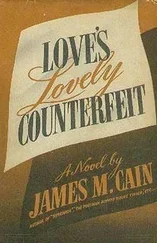It had taken him some time to come to that position. Peter happened to be in love with Jonathan’s wife. Before Jonathan and she were married, Peter watched intently, looking for any break. Yet day by day, month by month, year by year, they moved steadily closer. Had there ever been a sign of trouble? Had Jonathan failed to call? But Jonathan had never been the type who failed to call, and his wife had never been the type to be upset if he had. Had Jonathan offended her family? No. Had the magic simply disappeared? No.
Jonathan’s wife was very pretty, she was kind, she was smart, she was funny, and she was much too good for Jonathan, who was a fairly despicable character. She and Peter particularly liked each other. That had been true before she married Jonathan, but there were rules about how you conduct yourself around your best friend’s protowife. If they broke up and a decent interval passed, you could then make an approach. But the honorable friend would do nothing to drive the two apart. Really, honor alone had not inhibited him. So had the fear of rejection, and he considered the odds of rejection high. Whatever affection Jonathan’s wife may have felt for him back then, and felt for him now, he knew that, romantically, it meant nothing—to the contrary. They had established the kind of fraternal relationship, perhaps a bit closer than the typical one, that often arises between a man’s girlfriend or wife and his best friend. She took an interest in Peter and in his love life in the way married women, or virtually married women, do with the single friends of their mates, the ones they like. Their “intimacy” had been possible for the very reason that it had no sexual or romantic overtones. If Peter tried to convert intimacy of this type into sexual currency, he knew, he would be met with shock, disgust, pity, laughter, and derision. He would lose his friend, his friendship with his friend’s wife, and his pride. He would have to kill himself.
Peter had been the best man at the wedding, and after that he had given up on ever marrying someone with whom he was deeply, passionately, heartbreakingly, searingly in love. Then he met Charlotte. They got along. Over time he became attached to her. She moved him. Charlotte was attractive to him, periodically. Charlotte was the kind of person a person like him married, and she wanted to marry him. Love—come on. How many people are really in love when they get married? And if they are at that moment, how many remain so two years later?
Having allowed matters to proceed as far as he had, Peter would have found it very difficult to break things off. Charlotte had something in her, that fearful look in her eye, that made it hard, very hard, for Peter to hurt her. True, her panic about getting married may have been premature, but in her circle, there seemed to be an unstated agreement that if you let your early thirties go by without settling on someone, then it was a very fast shoot to forty, when you really would be desperate. Peter did not think so well of himself or so little of Charlotte to assume that if he didn’t marry her, she would never be able to find any happiness. Still, she was counting on him. Charlotte had wanted to get married so badly. Steadily applying herself and moving at a pace that was faster than what was natural, she had begun to treat him more and more like a presumptive husband, taking him to events with her family or friends or related to her work to which one would take only one’s fiancé or spouse or the person one had been living with for ages. She would ask him to perform spousal tasks, like picking her mother up at the airport. She used the first-person plural pronoun. Soon enough, Peter found himself in a different country without the right papers to get back over the border. Then, too, like all young people nowadays, they had had a conversation initiated by the woman about whether their relationship was moving forward; they had been seeing each other for about a year at that point, and they’d agreed that it was.
Over and over and over, Peter asked himself if it was really fair for him to marry Charlotte if he wasn’t truly in love with her. An advice columnist would say it was not, without question, and he sometimes wished he could agree. But this was the real world. Of course the chances of Charlotte’s being happy were better if Peter married her. Or maybe this argument was just a rationalization for his cowardice. But no, it was surely the more loving thing to marry Charlotte. And as for Peter himself? Married to Charlotte or not, he was out of luck. He was due to marry, and he and Charlotte had a pretty good chance of being pretty happy. It would be fine.
And Charlotte, why did she want to marry Peter? She liked to present herself as being very worldly, always collecting interesting people, scoffing at the bourgeoisie, but she was, in fact, deeply cautious and conventional. Although she would never have admitted it, she was terrified of being either unmarried or married to someone who was odd or ugly or impoverished or who required her parents and grandmothers to make an uncomfortable social stretch. Peter saved her from those fates. Also, she did love him. She liked the feel of his arms around her. He had a comforting, dry smell, like cork. He was kind, and her father, though charming and well dressed, had never been. Once when she was thirteen, she was going to a dance in what was really her first grown-up dress, and she ran into the living room to show it to him and her mother. “Ah,” he had said, drink in hand, “ voici la coquette! ” She felt as if he had slapped her, but she couldn’t explain precisely why. When she got older, she learned enough from her therapists and her friends and her friends’ therapists to understand that there was a danger that, replicating the relationship with her father, she would marry someone cruel. She had tried to avoid that. Maybe—maybe she had to force it a little bit; maybe she wasn’t “in love” in love with Peter and had to fashion a notion that she was. This she managed to do. In any case, she had already filled in the Passionate, Crisis-Filled, Tempestuous Love bubble on her answer sheet of life. Deep down, she suspected that, probably, Peter was not “in love” in love with her either, but this was a condition she could live with. The marriage problem would be solved, and she knew she could trust him and that he would treat her with kindness.
So it had come to be that, on an evening in early spring, Peter had arrived at Charlotte’s door with the intention of asking her to marry him. She lived in a one-bedroom apartment in a brownstone on a handsome block uptown between Park and Madison avenues. Peter had come from work and, leaving the subway, he had passed a Korean market, where it had occurred to him to buy some flowers. He decided on daisies; they seemed winningly simple. The daisies smelled of earth and grass; water had dripped from their green stalks onto Peter’s hand when he took them out of their bucket. Daylight saving time had just returned, and the light at that hour, still so surprising, made Charlotte’s street look as if a lid had been lifted from it. The brownstone seemed softer, and the air, a little warm now, seemed to buoy him up gently.
No young man carrying flowers on an evening in early spring down a handsome street with the intention of asking a woman to marry him can be entirely immune to the romance of the occasion. And indeed Peter did feel romantic, nervous and eager. His jacket pocket held a small velvet box that contained a diamond ring whose stone was not ostentatious but still sizable.
He greeted Charlotte. She was wearing lighter clothes than she had worn in recent days. She had had her hair cut that day and looked especially young. She had known telepathically that something was up and greeted him with a longer and more than usually tender kiss. “How pretty. Let me put these in water,” she said, taking the flowers from him. “Lots of chances for me to play ‘He loves me, he loves me not.”’
Читать дальше












